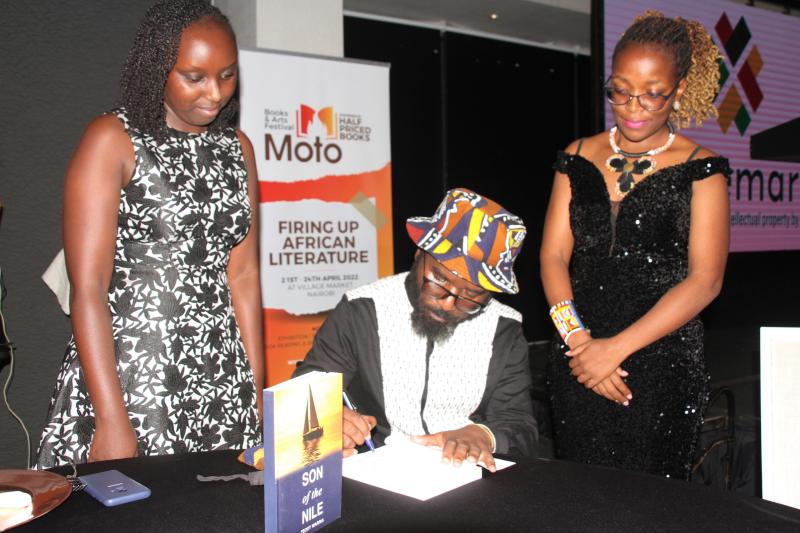×
The Standard e-Paper
Stay Informed, Even Offline

Book enthusiast Diana Korir (left, Curator of MOTO Books and Arts Festival Mercy Kibira (right) with Teddy Waaria, author of "Son of The Nile" at the book launch. [David Njaaga, Standard]
Authors and publishers want stringent policy measures taken in the fight against book piracy in an effort to enhance the impact of literature on society.